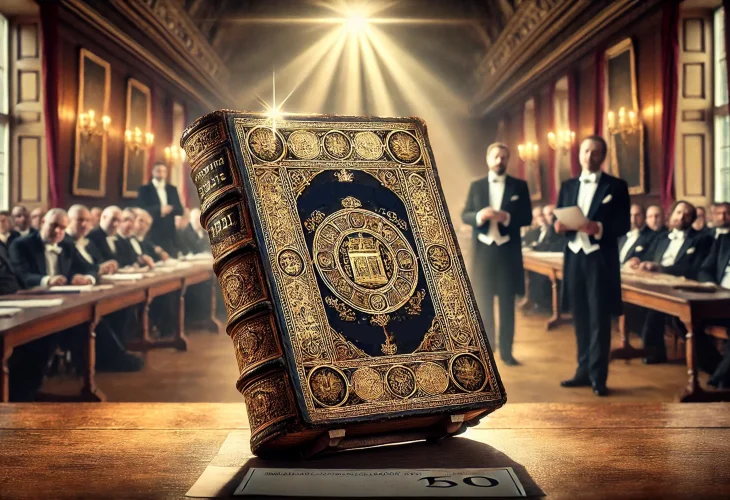Why Did King Henry VIII Need a Talmud?
Surprisingly, King Henry VIII of England, who reigned about 500 years ago, possessed a rare and ornate set of the Talmud Bavli—an exquisite first edition by Bomberg—safely stored in royal archives. But why did King Henry VIII need a Talmud?

At an auction in England from a few years ago, a surprising item was offered: the Talmud of King Henry VIII... It turns out that about 500 years ago, King Henry VIII of England owned a dazzling Talmud Bavli—a full set of six volumes, a precious first edition printed by Bomberg. This set was kept meticulously within the English royal archives, originally belonging to Westminster Abbey before finding its way to the auction house.
Why did King Henry VIII need a Talmud Bavli?
The story is intriguing, perhaps even amusing. Henry VIII was the younger son of Henry VII. His older brother Arthur was the heir to the English throne and was married to Catherine, a Spanish princess, daughter of King Ferdinand of Aragon (the king who signed the edict for the expulsion of the Jews from Spain). Arthur fell ill shortly after his wedding and died. Henry VIII then inherited the crown and also his brother’s wife.
Years passed, and the royal couple did not have a male heir. The king knew that without a son, the crown would pass to another branch of the family. This was something he strongly opposed; he wanted his own offspring to succeed him on the throne.
According to Jewish law, if a couple does not have children, they should sadly divorce to fulfill the commandment of populating the world. However, in Christianity, the practice was the opposite: divorce was forbidden. The church did not recognize divorce—no matter the circumstances, divorce was not permitted. Thus, everyone thought it was decreed that Henry VIII would remain a lonely king without an heir.
But Henry VIII was determined and looked for any way to escape his predicament. He had heard that in Judaism, if a flaw is found in the betrothal, it is declared invalid from the start. He thought to himself: if Jews can annul a marriage, maybe we could do so too, if only he could get the Pope to declare the marriage void.
King Henry pondered his marriage and suddenly realized: he married his brother’s widow—aligned with the 'Yibbum' (Levirate marriage) commandment in the Torah. In Christianity, however, there is a "law" of not performing Levirate marriage. Given that he had no intention to fulfill Yibbum, perhaps the marriage was indeed invalid?
The Pope was not enthusiastic about the idea, as it would greatly offend Ferdinand, King of Spain. He declared he "found no justification."
Undeterred, King Henry turned to the Jewish scholars known for their sharp discussions. He obtained Jewish texts, including the Talmud, and attempted to study Tractate Yevamot with the help of a translator—even though this tractate challenges the greatest Torah scholars.
There were no Jews in England at that time; they had been expelled after the York riots. Nevertheless, a special envoy from King Henry was sent to Venice, where many esteemed Jewish scholars lived. The king’s question was directed to Rabbi Jacob Raphael Pano, and his response was documented in his responsa literature.
From the letter, it is clear the Rabbi earnestly tried to engage with the king’s "arguments" respectfully. He cited opinions from various commentators in Tractate Yevamot. After much elaborate discussion, the rabbi concluded there was no halachic solution for the king. His marriage was permissible according to Jewish law, hence could not be annulled from the start; if the Pope refused to annul the marriage, there was no way to change this. Thus, the Jewish scholar succeeded in respecting the king while not angering the Pope in Rome.
If you’re worried about Henry VIII, he found a way. He decided the Church of England was not bound to the Roman Catholic Church. He established a new sect in Christianity where the powers of the Pope were vested in the king, and the self-appointed Pope-King graciously permitted himself to end his marriage. There were indeed some English clergymen who opposed these changes, but Henry VIII made sure to behead them. The king no longer needed the Jewish Talmud, which remained forgotten in one of the storage rooms...

